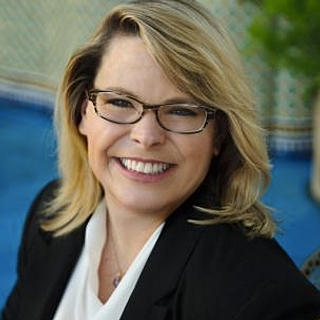Recruiting Hard?
- Deb Russell
- Nov 8, 2018
- 3 min read
Has recruiting become more difficult? Of course it has, the US Department of Labor released data (in July of this year) that the United States has hit “full employment”. Which means that there are now more job openings than seekers.

At the same time, those statistics don’t reflect the entire population of people available to work. For some reason I don’t understand, about 10 million people with disabilities (who are capable of working) are not included in these key statistics. Which is great news!!! There are more job seekers. But this group is harder to recruit with your usual recruiting tactics. They are looking for an opportunity that is a good fit for their skills and abilities. They are looking for an employer who welcomes their unique attributes. They (we) want to feel included.
If you don’t have time to read all the way to the bottom, click here for 5 quick tips be more inclusive while interviewing people with disabilities!
As the last frontier of inclusion in the workforce, people with disabilities are waiting to no longer be an afterthought. We want to feel like we belong. Unfortunately, there seems to be much angst about hiring and employing people with disabilities. The perception is that there are special things, procedures, languages and etiquette that need to be in place before a company is “Really Ready” to hire people with disabilities. So, let’s start breaking that down to explore What's it REALLY like to Employ People with Disabilities.
Our first installment of this series touches on one of the most common questions I hear –
“How do I learn to talk to people with disabilities? I don’t want to say the wrong thing, insult them or make a mistake.”
First of all, there aren’t any special rules about communicating with all people with disabilities. Just be inclusive and open minded. As with all human interactions, there are opportunities to make mistakes, we all make them, but the real skill to acquire is how to apologize and learn from them. It can feel a little embarrassing, but mistakes related to people with disabilities, is no big deal. Unless you make it one. So, lets get to this question:
What if I make a mistake or say something offensive?
This is actually the number one fear of those unfamiliar with disability!! So, let’s unpack this and see if I can help you jump over this hurdle. First of all, let’s just assume you will make a mistake. Even those of us with a career wrapped around disability make mistakes. But as I said, it’s what we do after the mistake that’s important. We apologize. Let me tell you a quick story – I was in an all-day meeting where we sat around a conference table. I was sitting next to Linda, who’s blind, and she had her stack of documents (that had been brailed in advance). This was about 20 years ago, so the protocol was to start each section of the agenda by passing large stacks of documents from person to person. So, all morning, I reached across her and passed the stack to the colleague one seat over from Linda, saying “excuse my reach” (or something to that effect) each time. After lunch, she asked “Why are you excluding me? I am capable of passing the documents, I may be blind, but my hands and arms work fine”.
Now, I hadn’t intended to exclude her, I thought I was being considerate. So, I sincerely apologized to her and passed the stacks to her the rest of the day. Several years later, I was in another meeting with a colleague, Annie, who has some trouble with her hands. Recalling my situation with Linda, I was very intentional to include Annie and pass the stack of documents to her each time. About 2 hours into the meeting, she asked me to pass the documents around her and just set one in front of her. She said “that’s easier, because of my hands you know…” I apologized and did as she asked for the rest (and all future) meetings.
Rarely, do we intend to offend anyone. But mistakes can happen because something is new. If you make a mistake, apologize and correct yourself. If you don’t understand the feedback or request, ask for clarification. It’s impossible to know every nuance of every person.
And we all operate based on our experiences. So, if you have limited or no experience with people with disabilities, you simply don’t know any better... yet. But you will learn and that’s OK. It’s best to do what seems natural and sensible and if that's wrong, apologize and adjust.
Need more tips for being inclusive? click here for 5 quick tips be more inclusive while interviewing people with disabilities!


Comments